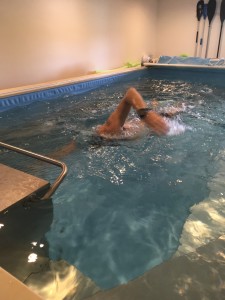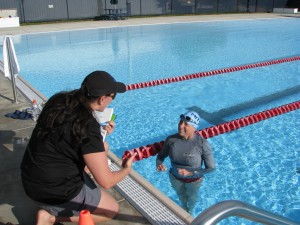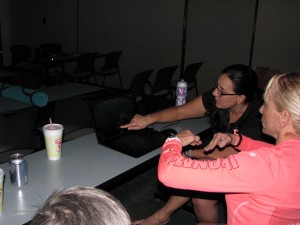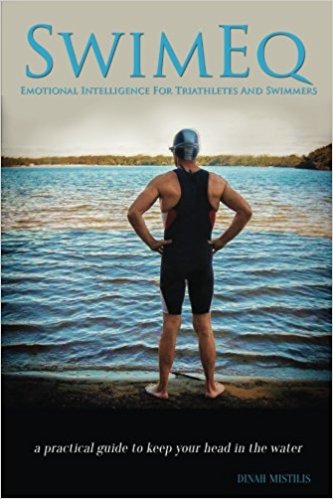Breaking Free from Self-Imposed Limitations
It is easy to burden yourself with a perception that you can’t do something, or you are not good enough. And in fact these perceptions can have us trapped in a false reality…..you begin to believe these self-imposed limits. You may feel trapped or frustrated at being caught in this cycle. The good news is, that it is possible to break free and knock down these limits, reaching even farther beyond them.
First let’s look at some common self-limitations related to swimming:
I don’t know if I can swim that far
I am not fast enough
I am not good enough to share a lane
I am not good enough to swim in open water
I am not good enough to put down that seed time
A recent example from the Discovery Aquatics studio was a young athlete, returning to the studio after some time off post full iron distance racing. He had just made the career move from NC to NYC and visits the studio when he is in town. I had the pleasure of working with him for a few months, and the most rewarding part of this coach/athlete relationship, was guiding him through releasing himself from his own self-imposed limitations.
After his ironman, swimming took a back seat to work and career. A somewhat normal, necessary life tangent. This focus had him move to the overwhelming world of NYC. He had lost confidence in his swimming and in navigating a big city to find a pool. He had imposed on himself that he did not have the fitness to swim laps, he was not good enough to share a lane, and he was going to be the worst swimmer in the pool. I could sense the anxiety about this as he spoke. However, he was determined to compete in a triathlon during spring.
So we devised a plan. It was based around 3 steps to overcoming self-imposed limitations.
1. Question the limitation – who is setting the expectation? When you acknowledge the limits are being set from within, you can bring the issues out in the open and address them. In this case, the athlete had talked himself into a false reality that he was not good enough. Once he recognized this, it was easier to formulate an action plan.
2. Make a list – when have you been a success? Noting the times you have been great or successful at something will help the brain change gear. It doesn’t have to be athletics, it can be any time in your life you have done well. You will quickly see that you are good enough. For this athlete that list was easy – recalling several past races and long open water swims gave him a sense of achievement and shifted the mindset to ‘I am good enough’.

Finding His Stride
3. Be active in change – make a plan. Enlist some help to create step by step actions, to work towards overcoming your own perceptions. For this athlete we began with a very basic task. For two weeks, the task was simple and manageable. Find a facility to swim, get to the pool and swim a very short workout. This exercise was about creating routine, and realizing the reality of the situation was not at all like his created limitations. The feedback was wonderful and he began to see that he was good enough. From there the plan expanded to 2 purposeful workouts a week with increasing difficulty.
We have worked together for almost 3 months this year – mostly remote with 3 in person sessions. He has a schedule of swim workouts from our book Fresh Freestyle, and has seen his 100 yard freestyle time drop from 2:15 to 1:45. He is ready for his first race in two weeks.
We destroyed the seemingly unbreakable barrier of self-limitations. It took just a little redirection and time. I truly enjoy these relationships with athletes – watching them learn in swimming and in life.
Coach Dinah



